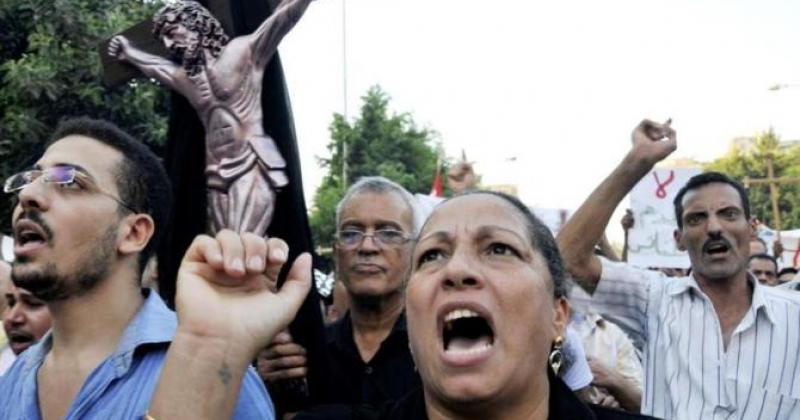At the culmination of weeks marked by violent sectarian clashes and attacks, Patriarch Tawadros II launches a cry of alarm and Sisi invites him to the presidential palace
It now seems certain that, among the many unanswered questions and criticism in Egypt, a Coptic issue exists. The Christian community, whose presence has ancient roots comprising thousands of years - Coptic means Egyptian - is one of the most diffused in the area, with its approximately 10 million faithful (and many members of the diaspora) and the most entrenched within the surrounding framework. But since the outbreak of the “Arab Spring”, it has lived in a state of growing tension that had its peak during the period of the Morsi government. In the eye of the storm, there is chiefly (but not only) the Minya region where, between this past May and July, there have been several attacks that led to the death of a man, the wounding of many others and the destruction of houses and properties belonging to the Coptic community.
The cliché is a classic one: unfounded rumors are spread about alleged massive construction projects of new churches or offensive acts of Christians towards Islam (among these there is also an alleged affair between a Coptic man and a Muslim woman in the village of Al- Karm which led to the attack on various houses and the beating of an elderly woman, the man’s mother) and the violence is unleashed. The situation, at the height of tension, has led in recent weeks to two dramatic gestures.
In late July, Patriarch Tawadros II announced the suspension of the traditional catechesis, held every Wednesday afternoon in Cairo since his election (except for a break of several weeks, again in protest, after the deposition of former President Morsi and anti-Christian violence in 2013), as a sign of reaction against the new series of sectarian attacks that have occurred in various parts of Egypt.
In response, Abdel Fattah el-Sisi - who on 21 July had launched an appeal for understanding and religious brotherhood - summoned the Coptic Pope to visit the presidential palace together with a delegation including some bishops of the Synod. On that occasion, the President reiterated that Egyptians “are all equal in their rights and in their duties, in accordance with the Constitution,” and he praised the calm and wisdom with which the Christian community is responding to the violence it faces - and wanted to stress that there is no room for those who try to exploit Islam, or any religion, in order to fan the fire of extremism.
The two gestures, in the sequence of days, seem to have calmed troubled waters for the moment. The Commission for the Management of the Crisis of the Coptic Church has canceled the planned official visit of a large delegation in Minya that might have rekindled hatred in some way, and sources close to the patriarchate said they were reassured by the words of the president. But there are many who remain skeptical.
On the phone with Vatican Insider, Mina Fayek - a journalist, blogger, Egyptian activist and member of the Coptic community - said “The Church, since the time of Morsi, is terrified of going back under a government led by Islamic extremists and, as it was during the patriarchate of the predecessor of Tawadros, Shenouda III (who never failed to support Mubarak, even in the presence of attacks, and asked the faithful not to take part in the Arab Spring, Ed.) has every interest in keeping good relations with the government without ever raising its voice too much. The clearest example is the meeting between the president and Tawadros a few days ago: according to many media reports, the two did not even touch on the topic of aggression.”
The official strategy of the Church and its most representative elements continues to be marked by prudence, as demonstrated by the meeting between the President and the Patriarch and the declaration, among others, by the Coptic Egyptian writer Michel Fahmy who is strongly opposed to the staged events last week in front of the “White House” by sectors of the Coptic diaspora in protest against aggression. In a note, he defined the demonstrations as “stupidity or treason” committed by small groups, emphasizing that only the Egyptian State is able to protect the Copts from sectarian violence.
“But it makes no sense,” Fayek continues, “to talk about the Coptic issue. We would be better off writing about the Egyptian issue. We cannot isolate problems that the Copts are facing from those that an entire country is experiencing. And what about the young people who disappear, are tortured, and killed? The fact that it is impossible, even in the least, to oppose the regime? Since the rise to power of Sisi, we have witnessed an unprecedented wave of repression. We will never be able to solve the Coptic issue until a full rule of law is reinstated throughout the country, one that includes each and every citizen.”
